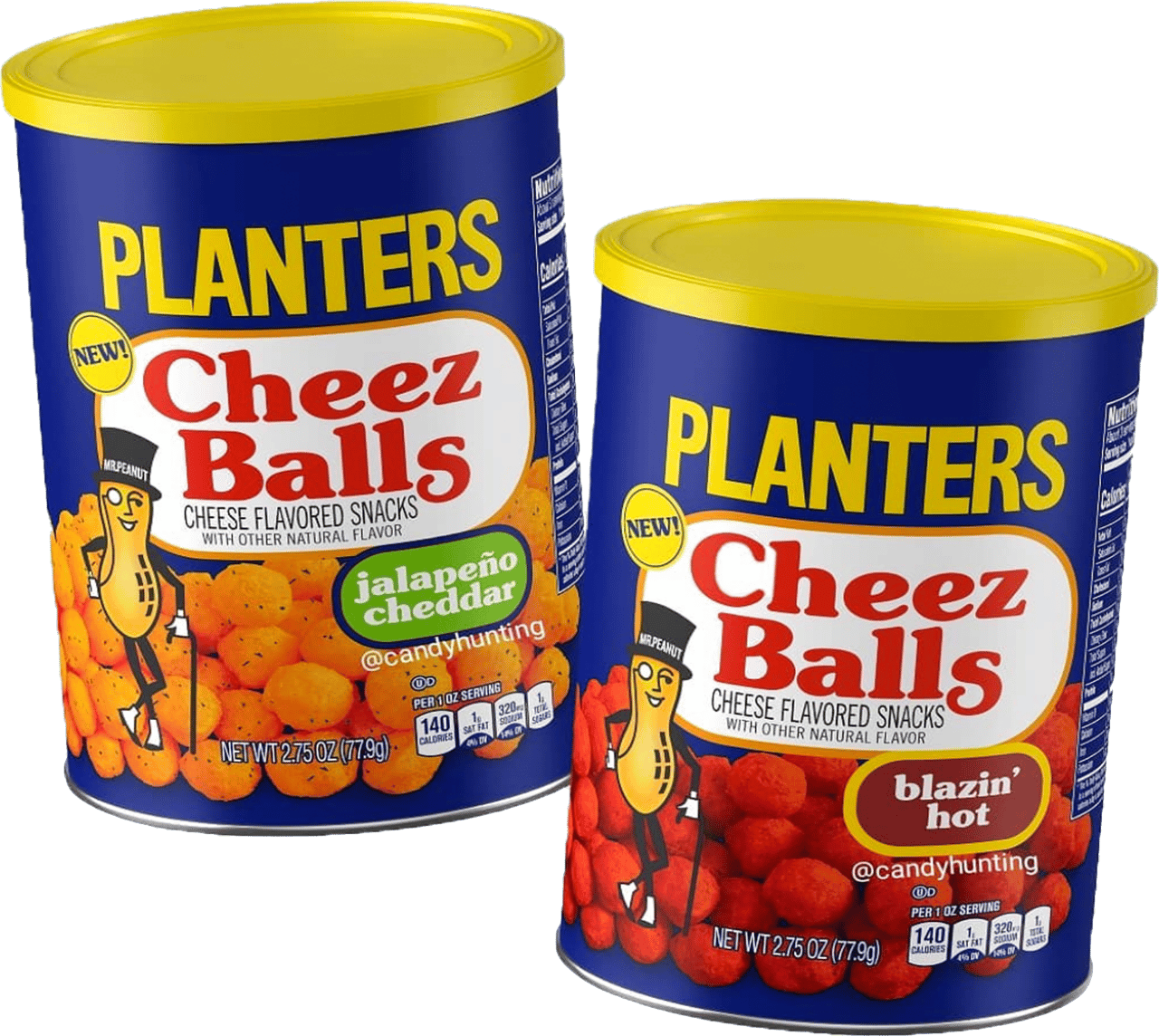

Top 100 Food & Beverage Companies
Coping with COVID-19:
How the top food and beverage companies managed the unthinkable.
By Kristin Joker
2020 was a year like no other. Yet despite the challenges brought on by the pandemic, most top food and beverage brands remained stable. In fact, the food and beverage industry is one of the only consumer product sectors to grow in 2020. In uncertain times, brand trust is important. As a result, retailers favored established brands over new brands entering the market. That means a majority of the Top 100 companies kept their market stronghold.
The pandemic spurred a shift in consumer behavior, and companies that were able to pivot quickly and support top trends, such as home meal prep, healthier choices, new flavor profiles and e-commerce shopping, thrived.

In 2020, Planters introduced new favors including jalapeno cheddar and blazin’ hot Cheez Balls.
Nestlé held the top spot and reported organic growth reached 3.6%. That growth was supported by strong momentum in the Americas, Purina PetCare and Nestlé Health Science. However, sales in confectionery and water decreased, reflecting their high exposure to out-of-home channels and on-the-go consumption.
Frozen food reported high single-digit growth, led by Stouffer’s, DiGiorno and Hot Pockets. Home-baking products, including Toll House and Carnation, saw elevated consumer demand. Gerber baby food posted positive growth based on strong sales development in e-commerce and for the organic range. Water and Nestlé Professional reported a sales decrease, reflecting reduced demand in out-of-home channels during lockdowns.
E-commerce sales grew by 48.4%, reaching 12.8% of total group sales. Coffee, Purina PetCare and Nutrition & Health Science were the main growth contributors. Throughout 2020 all companies relied on e-commerce to offset the pandemic. According to statistics from Brick Meets Click and Mercatus, $64.4 billion was spent on online grocery shopping between March 2020 and February 2021. More than 69.7 million people regularly used online grocery shopping in January, the firms found.
PepsiCo, number two on our list, saw 4.8% revenue growth. “We ended the year on a strong note with our global beverage business having accelerated while our global snacks and food business remained resilient in the fourth quarter. Our results were indicative of the strength and resilience of our highly dedicated employees, diversified portfolio, agile supply chain and go-to-market systems and strong marketplace execution even in the face of difficult COVID-19 challenges,” says chairman and CEO Ramon Laguarta.
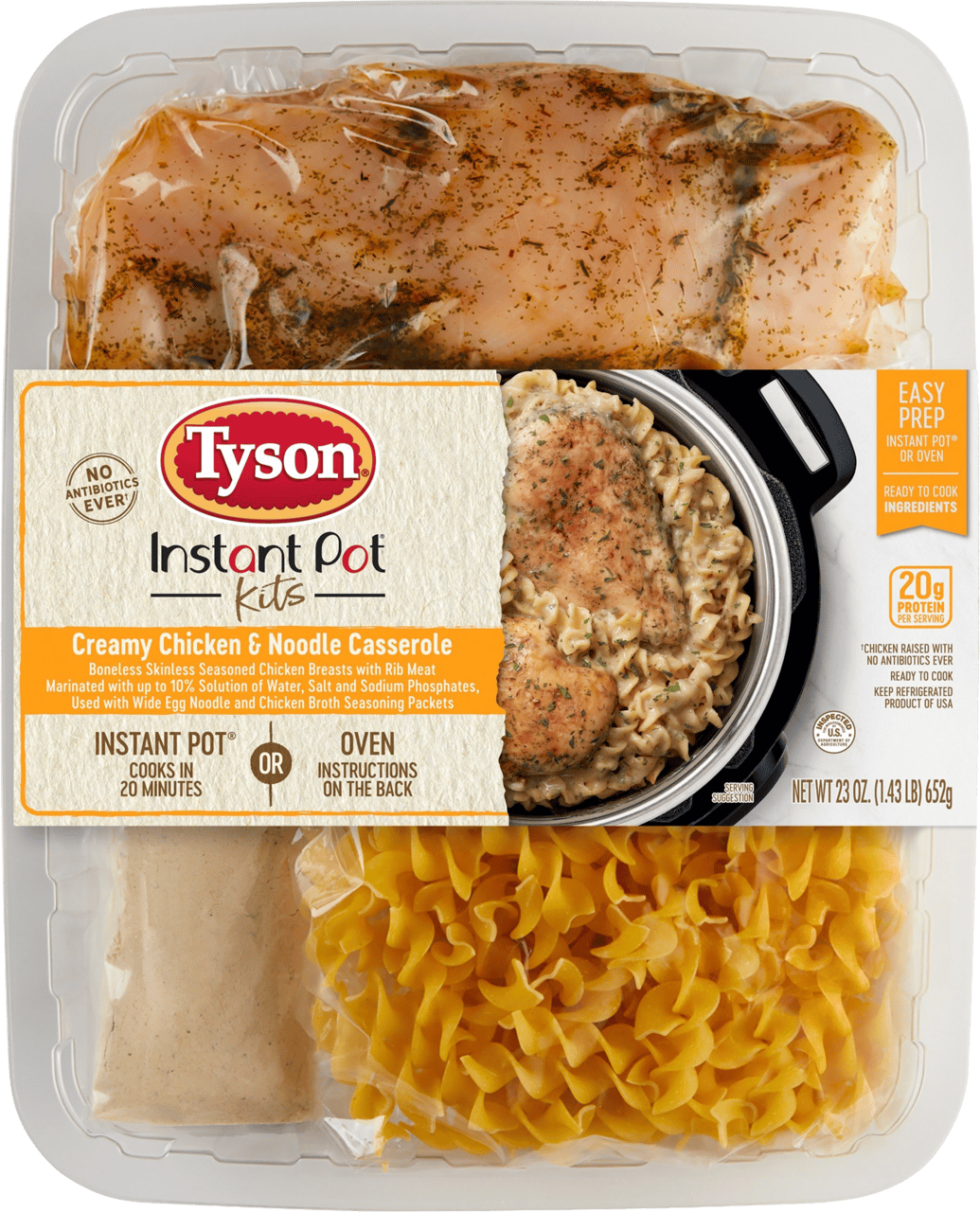
Tyson Foods introduced Insta Pot at a pivotal time.
Home Meal Prep
Global lockdowns forced people to cook resulting in skyrocketing grocery sales, specifically e-commerce sales. Dry goods sales grew by 20-25% and grocery perishables increased by 15-20%. A survey conducted by the American Frozen Food Institute revealed a 70% increase in frozen food sales. Nestlé also expanded its presence in direct-to-consumer meal delivery services through the acquisition of Freshly in the United States in November and the purchase of a majority stake in Mindful Chef in the United Kingdom in December.
Tyson Foods introduced Instant Pot Kits to ease the burden and cooking fatigue. The company’s research indicated that after months of home-cooked meals, families were turning to prepared foods and easy prep meals as a way to save time and add variety to their nightly dinner menus. In addition, 60% of home cooks report they rely on Instant Pots or similar appliances for their cooking routine for the simplicity, versatility, and convenience of making, flavorful meals with less cleanup.
Tyson Foods also experienced the downside of COVID-19. Throughout 2020, several U.S. plants suspended operations and voluntarily closed for up to two weeks as employees tested positive for the virus. Brazilian meat company JBS saw more than 200 of its employees sickened by COVID-19 after an outbreak in one of its Colorado processing plants.
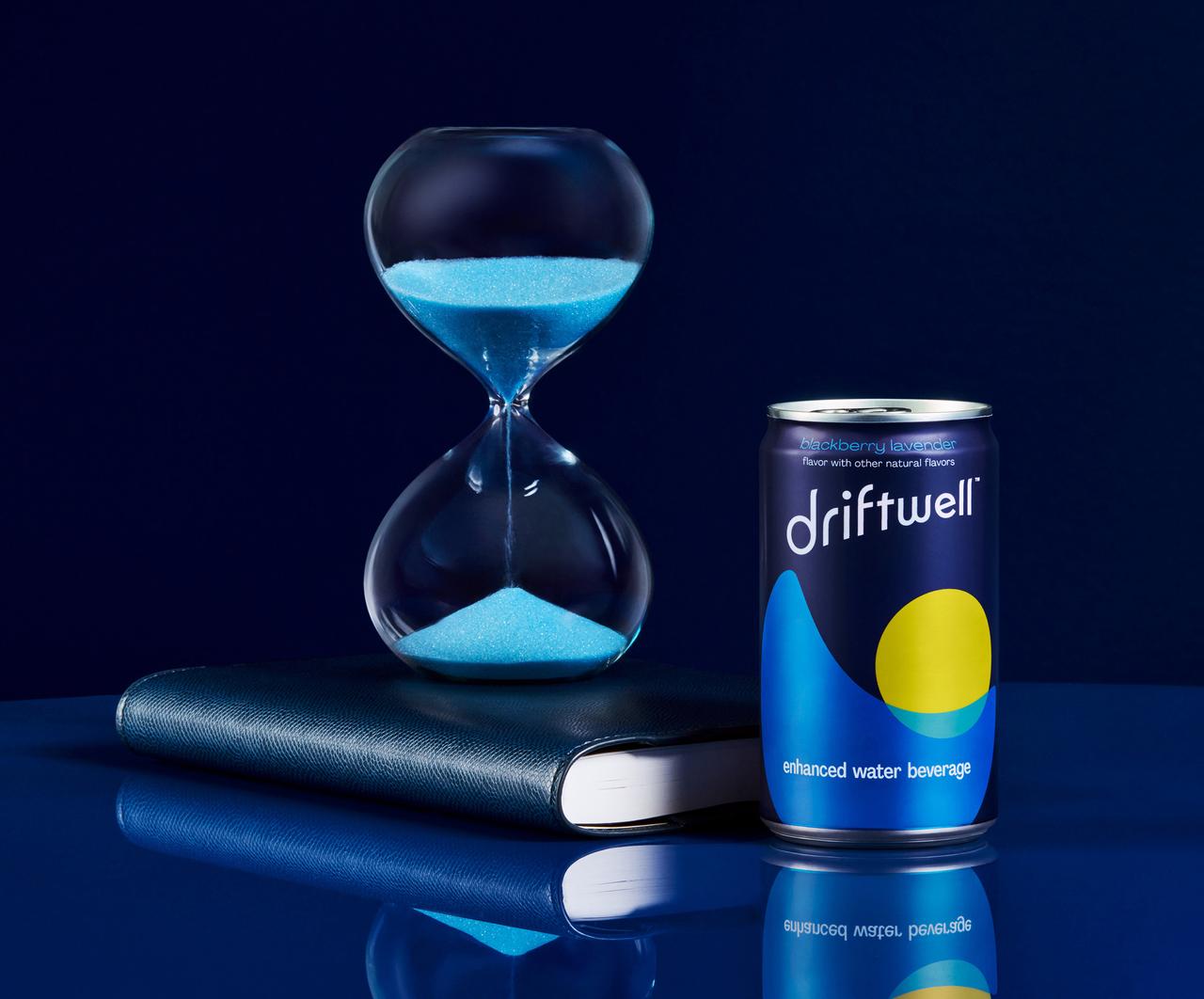
PepsiCo introduced its first functional beverage, Driftwell.
Functional Ingredients
PepsiCo announced the functional beverage Driftwell. Emily Silver, vice president of innovation and capabilities for PepsiCo Beverages North America, describes the blackberry-lavender flavored drink as a “relaxation beverage.” Driftwell launched online in December, and the early feedback was promising.
“We launched on e-commerce first so we could hear what consumers were saying,” Silver explains. The launch resulted in more than 500 press mentions (Jimmy Fallon even gave it a shoutout) and an industry award for best functional drink. On the flipside, PepsiCo acquired RockStar Energy for $3.85 billion. Not to be outdone, Coca-Cola debuted Aha sugar-free sparkling water, its first new brand in more than a decade.
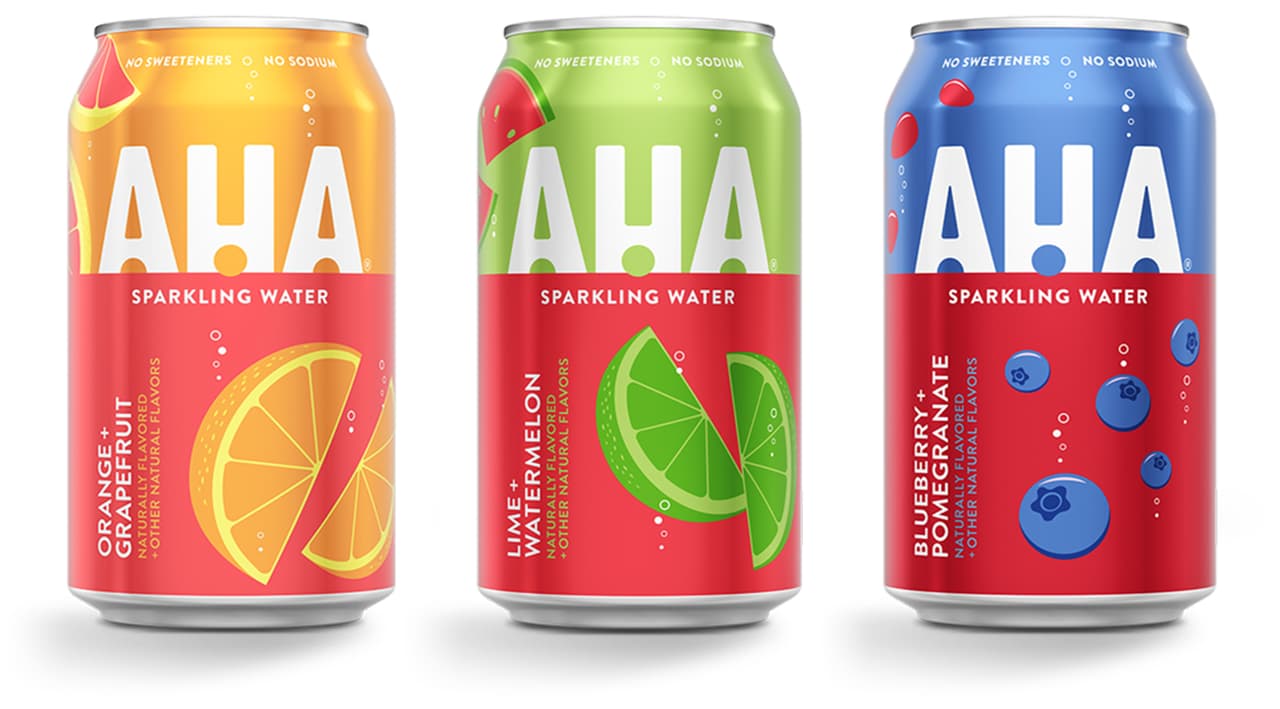
Aha sparkling water is Coca-Cola’s first new brand in 10 years.
Seltzer Soars
According to Nielson, since the week ending March 21, 2020, each week’s dollar sales of hard seltzer within the U.S. off-premise market has exceeded the week of July 4, 2019 (previously the highest individual week of sales).
Moreover, the week ending June 13, 2020 represented the fourth consecutive week during which hard seltzer drove more than $100 million in retail off-premise dollar sales and the 10th consecutive week during which annual retail hard seltzer dollar sales increased by at least $50 million.
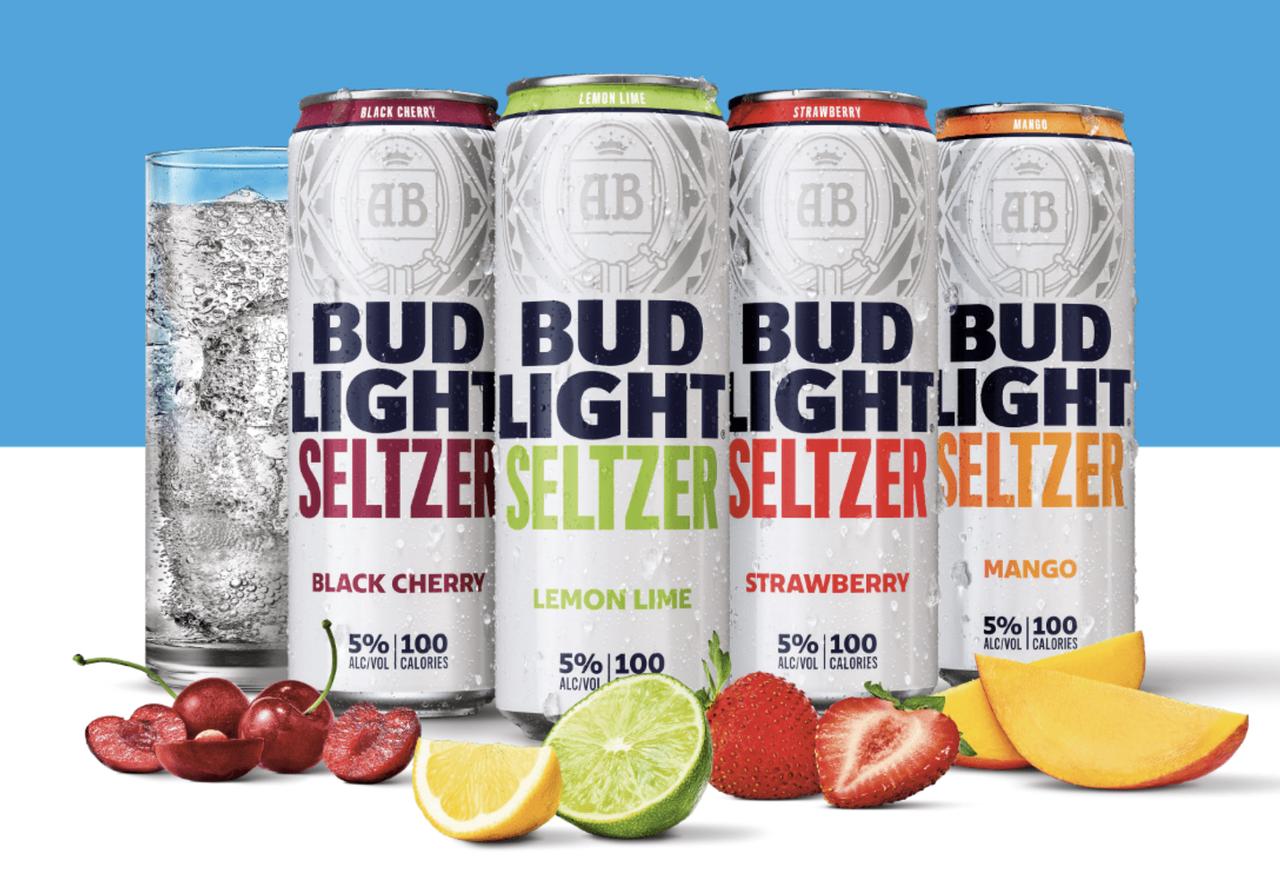
Anheuser-Busch InBev launched Bud Light Seltzer to compete with Mark Anthony Brands top sellers White Claw and Truly.
Petcare Profits During Pandemic
Business Wire reports pet care is forecasted to grow by 7% by 2026, capitalizing on the boom in sales during the pandemic, the growth of the pet population and higher spending. From a retail perspective, across-the-board sales increases for every channel were recorded, with e-commerce coming out on top. Total retail sales grew 6.7% from 2019, and APPA reported pet specialty and independent retailers “experienced solid growth” despite disruptions caused by the pandemic. Additionally, 47% of pet owners said they have increased the number of times they purchased pet products online and 30% of pet owners said they spent more on pet supplies in 2020, compared to just 10% that reported they had spent less. Nestlé acquired Lily's Kitchen, a premium natural pet food business in April keeping the company at number one on our list.
Dairy Declines
The biggest upsets of 2020 involved top dairy brands. This spring, Dean Foods, once the nation's largest milk processor, filed for bankruptcy. The Dairy Farmers of America (DFA) completed a $433 million acquisition of Dean Foods properties after reaching an agreement with the U.S. Department of Justice. DFA is the nation's largest dairy cooperative — and the largest private company in the Kansas City area.
The court also approved the sale, subject to entry of final agreed orders, of the assets, rights, interests and properties relating to eight additional facilities, two distribution branches and certain other assets to Prairie Farms Dairy for $75 million in cash and the sale of Dean Foods’ facility in Miami, Florida to Mana Saves McArthur, LLC for $16.5 million. The court also approved Producers Dairy's purchase of Dean Foods’ Reno, Nevada facility for $3.7 million and its purchase of the “Berkeley Farms” trademark and related intellectual property for $3 million.
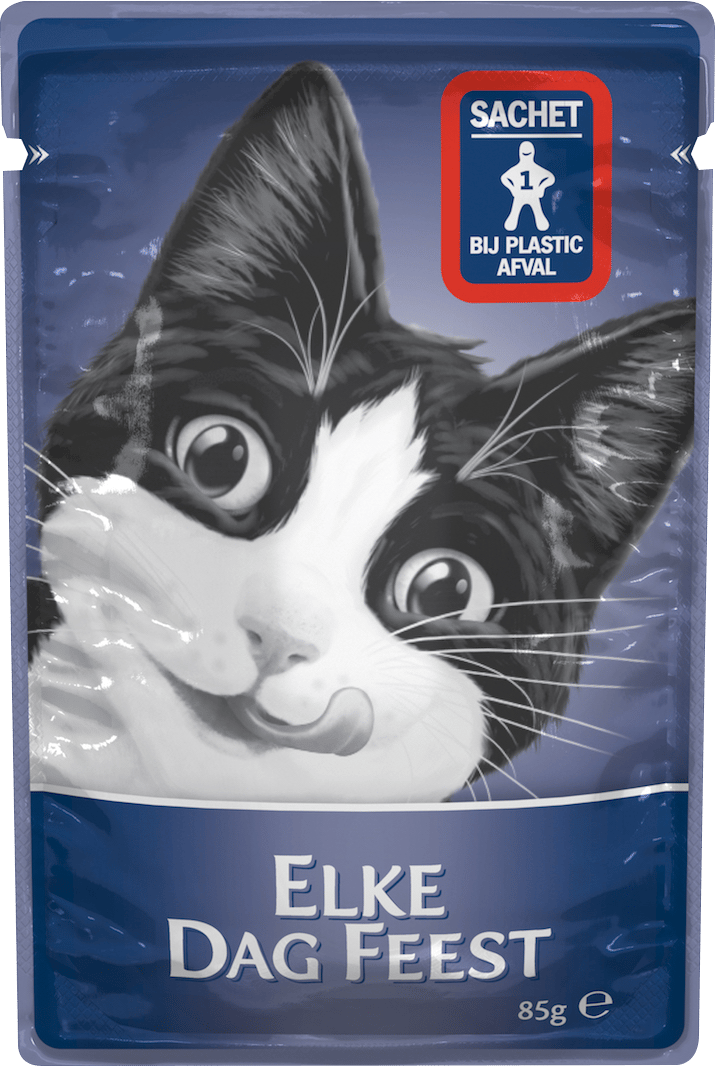
Amcor's AmLite HeatFlex Recyclable mono-layer polypropylene material was announced this year.
Circling Back to Sustainability
Although consumers put sustainability concerns on pause this year, the industry continued its efforts. In 2020 Amcor partnered with Nestlé and Mars international to launch products using Amcor’s AmLite HeatFlex Recyclable solution. Mars announced that it will begin to use recyclable mono-layer polypropylene plastic in its microwavable rice pouches for brands such as Ben's Original and Seeds of Change. The project is the result of a three-year partnership with Amcor to develop sustainable packaging alternatives and moves both companies closer to their goal of achieving 100% recyclable or reusable packaging by 2025. According to the companies, the launch will bring to the market the industry's first food-safe mono-material microwavable rice pouch.
Certain Nestlé pet food products will be packaged in a recyclable flexible retort pouch. The new high-barrier pouch, using Amcor’s AmLite HeatFlex Recyclable solution, became available in-store starting in October 2020.
Amcor's AmLite HeatFlex Recyclable mono-layer polypropylene material which will retain the shape, shelf life, safety standards and functionality of its traditional packaging while ensuring that pouches can be mechanically and chemically recycled where infrastructure exists. The recyclable pouches were expected to launch in selected European markets by the middle of 2021.
In order of feature appearance, photos courtesy of Kraft Heinz, Tyson Foods, PepsiCo, Coca-Cola, Budweiser, and Amcor.
vokri / Creatas Video via Getty Images